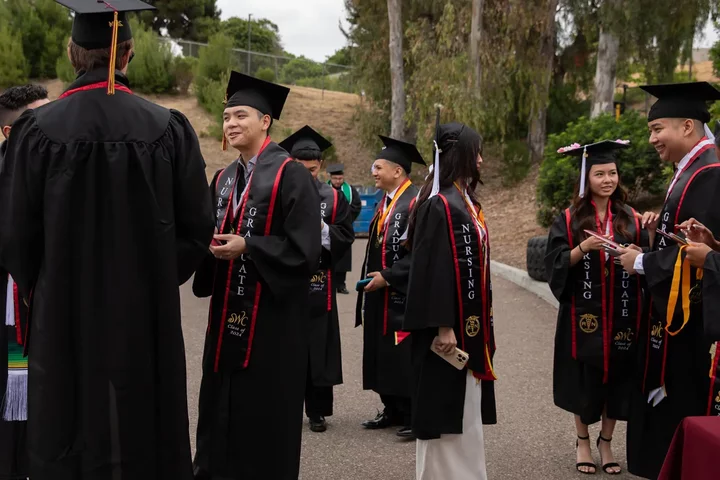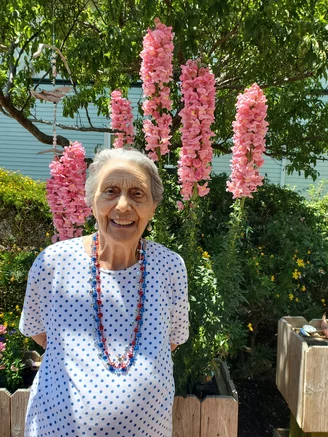Two Dogs Die After Swimming in Eel River Near Fernbridge
LoCO Staff / Friday, Sept. 6, 2024 @ 10:36 a.m. / Health
Example of a potentially toxic bloom of cyanobacteria. (Photo credit: Rich Fadness and Keith Bouma-Gregson, NCRWQCB)
Humboldt County Department of Health and Human Services press release:
Environmental health officials are reminding community residents to be on the lookout for harmful algal blooms after two dogs died a short time after swimming in a small pool off the Eel River near Fernbridge on Thursday, Sept. 5.
Warm water and abundant nutrients can cause cyanobacteria, sometimes called blue-green algae, to grow more rapidly than usual causing “blooms.” These blooms are termed “harmful algal blooms,” or HABs, and can produce toxins and taste and odors that cause health risks to humans and animals.
Freshwater HABs can appear as dark green, blue-green, black, orange or brown water or can occur as mats and sometimes create scum or foam on the riverbed or on the water. However, toxins produced by HABs may be present without visual indicators.
Typically, cyanobacteria warnings come out between late July and early August, coinciding with low flows and sustained high temperatures in the inland areas which may contribute to cyanobacteria growth in local rivers and lagoons.
Since 2001, there have been 12 documented dog deaths locally where the dogs died shortly after swimming in Big Lagoon, the South Fork Eel River or the Van Duzen River. In each instance, water samples confirmed the presence of cyanobacteria in the water. Additionally, in July 2021, the confirmed presence of cyanobacteria in the Trinity River east of Willow Creek is believed to have contributed to a dog’s death that had occurred weeks before.
Most algal blooms in California contain harmless green algae, however, it is difficult to test and monitor the many miles of local rivers with conditions that readily change. To stay safe, it is best to assume that all algal blooms have the potential to contain toxins.
Officials recommend the following guidelines for recreational users of freshwater areas:
- Keep children, pets and livestock from swimming in or drinking water containing algal scums or mats—especially those occurring in slow or stagnant water.
- Rinse your dog with clean water after swimming as toxins may still be present on their fur.
- Adults should also avoid wading and swimming in water containing algal blooms. Try not to swallow or inhale water spray in an algal bloom area.
- If no algal scums or mats are visible, you should still carefully watch young children, warn them not to swallow any water and bathe with clean water after swimming.
- Fish should be consumed only after removing the guts and liver and rinsing fillets in tap water.
- Never drink, cook with or wash dishes with water from rivers, streams or lakes.
- Get medical attention immediately if you think that you, your pet or livestock might have been poisoned by cyanobacteria toxins. Be sure to tell the doctor or veterinarian about possible contact with cyanobacteria or algal blooms.
To learn more about cyanobacteria and harmful algal blooms, visit the state of California’s website at www.mywaterquality.ca.gov/habs/index.html.
- Join or support one of the many watershed and river organizations.
To report a bloom, e-mail CyanoHAB.Reports@waterboards.ca.gov or call 844-729-6466 (toll free). Blooms can also be reported via the “bloomWatch” app which is available for free download on iTunes or Google play.
For information on conditions in Humboldt County, contact the Humboldt County Department of Health & Human Services Division of Environmental Health at 707-445-6215 or 800-963-9241. Photos of suspected blooms can also be emailed to envhealth@co.humboldt.ca.us.
Example of a potentially toxic bloom of cyanobacteria. (Photo by Rich Fadness and Keith Bouma-Gregson, North Coast Regional Water Quality Control Board [NCRWQCB])
Anabaena, a toxin-producing cyanobacteria, in and around dying green algae. (Photo by Rich Fadness, NCRWQCB)
BOOKED
Today: 7 felonies, 7 misdemeanors, 0 infractions
JUDGED
Humboldt County Superior Court Calendar: Today
CHP REPORTS
7480 Mm101 N Hum 74.80 (HM office): Assist with Construction
ELSEWHERE
The Hill: Commerce chief Lutnick admits to visiting Epstein’s island during Senate grilling
SF Gate: San Ramon approves thousands of new housing units on former office lot
SF Gate: Sweeping new rules restrict nearly all aspects of national park communications
Fire at Highland Park Home Sends One Resident to the Emergency Room This Morning, Humboldt Bay Fire Says
LoCO Staff / Friday, Sept. 6, 2024 @ 7:40 a.m. / Fire
Press release from Humboldt Bay Fire:
At approximately 1:18 am on Friday, September 6th, Humboldt Bay Fire (HBF) was dispatched to a reported structure fire on the 700 block of Burrill St. Several reporting parties stated flames and smoke were visible from a residence at that location. HBF responded with a full first alarm assignment consisting of three fire engines, one ladder truck, and a Battalion Chief.
Engine 8113 arrived on scene first due and reported heavy fire and smoke showing from the garage of a single-story residential structure. E8113 established a water supply and began attacking the fire. Additional units arrived on scene and confirmed that everyone was out of the structure. Fire control was achieved in approximately 10 minutes. At the time of the fire the structure was occupied by three people. All were able to exit the structure on their own, but one did suffer smoke inhalation that required transport via ambulance to St. Joseph’s Hospital.
The pre-fire value of the home was approximately $350,000 with estimated fire loss totaling $100,000. Fire crews did an excellent job protecting the majority of the interior of the home and contents from the heat and smoke. PG&E responded to the scene and secured the gas and electrical service from the residence.
The cause of the fire is still under investigation.
Humboldt Bay Fire would like to remind everyone that smoke detectors save lives! Smoke detectors give you crucial early warning that there may be a fire in your home andallots you time to escape. Once you’ve exited a home go to your family meeting place and ensure that everyone has made it out.
Should California Community Colleges Offer Bachelor’s Degrees in Nursing? Universities Say No
Mikhail Zinshteyn / Friday, Sept. 6, 2024 @ 7:02 a.m. / Sacramento
Graduating nursing students wait for the commencement ceremony to begin at Southwestern College in Chula Vista on May 24, 2024. Photo by Adriana Heldiz, CalMatters
Is there a nursing shortage in California? Now, yes, though in a few years, probably not.
By 2027, the state is projected to have as many nurses as it needs because of a rise in nursing program enrollment, according to UC San Francisco projections compiled for the state agency that regulates nursing programs. The report was published last year.
But there are other sub-shortages in California’s nursing workforce. Two bills passed by the Legislature last week focus on one of those: nurses with bachelor’s degrees.
Both target a growing demand for nurses to possess bachelor’s degrees by allowing some community colleges to issue them. Presently the colleges only provide associate degrees — generally the minimum degree needed to be a registered nurse.
The bills are the latest developments in the state’s ongoing quest to tweak the educational offerings of colleges and universities to address cultural and workforce needs, from requiring ethnic studies courses to permitting colleges and universities to issue degrees they haven’t before. But the bills also underscore the complexity of both identifying a labor force problem — a nursing shortage — and the role that community colleges and universities play in graduating skilled workers.
One is Senate Bill 895 by Sen. Richard Roth, a Democrat from Riverside. The other is Assembly Bill 2104 by Assemblymember Esmeralda Soria, a Democrat from Merced.
The California State University opposes both bills, viewing them as undermining a promise lawmakers made two years ago that community colleges wouldn’t issue bachelor’s degrees that duplicate existing Cal State programs, among other worries. Private colleges oppose the bills, as well. The University of California doesn’t officially oppose the bills but raised similar concerns.
Understanding the nursing shortages
Even as the state may not have an industry-wide nursing shortage by 2027, there are still stubborn sub-shortages.
While California has seen the number of nursing education program slots grow by 3,000 between 2018 and 2023, virtually all of that was at private nonprofit and for-profit campuses. Available slots at the more affordable public colleges and universities have remained flat.
There are regional differences, too, with California’s Central Valley and the Central Coast lacking enough nursing program slots to meet demand. “Those would be the regions that I would point to as having the biggest challenges,” said Joanne Spetz, a researcher at UC San Francisco who studies the state’s nursing sector and co-wrote the projections report
Yet another micro-shortage stems from the fact that more hospitals prefer — or require — hiring nurses with bachelor’s degrees. That makes sense: Several academic studies concluded that hospitals that increased their share of nurses with bachelor’s degrees saw lower rates of patient death and shorter hospital stays.
And an overall shortage may still persist past 2027 due to “high rates of burnout” that “may lead to greater turnover and departures from nursing,” the projections report said.
What the two bills will do
Enter the two bills the Legislature passed last week.
Will they lead to more registered nurses? Speaking of his bill in July, Roth said no. But it would help produce more nurses with bachelor’s degrees — which more hospitals say they want, he said.
The bill authors — as well as their community college and hospital backers — say some community colleges should be allowed to issue bachelor’s degrees in nursing for other reasons, too.
Students who live too far from a California State University or University of California nursing program could enroll at a community college and avoid long commutes to the public universities or much more expensive private colleges. There are more than 70 community colleges in California that offer associate degrees in nursing and 21 public universities — mostly through the Cal State system — that award bachelor’s degrees in nursing. And while some universities offer online programs, not every student has fast-enough internet or enough computing power at home, Roth told lawmakers.
Students with associate and bachelor’s degrees take the same licensure exam. Typically a bachelor’s degree in nursing requires about 30 more units of coursework, which takes about a year to complete.
An overall shortage may still persist past 2027 due to “high rates of burnout” that “may lead to greater turnover and departures from nursing.”
— UC San Francisco projections report
Both bills seek to form pilot programs that each allow just 10 community college districts — out of the state’s 73 — to offer bachelor’s degrees in nursing.
But they vary in other ways. Soria’s bill places an emphasis on pilots in the Central Valley, which has a chronic nursing shortage. Roth’s bill is aimed at the whole state, though it would focus on the Central Valley and other regions by prioritizing pilot programs in underserved communities. Both would require the Legislative Analyst’s Office to evaluate the pilots, but Roth’s bill would have the pilot programs last until 2034 while under Soria’s bill the programs would run until 2031.
Roth’s bill requires colleges in the pilot to have national accreditation, which can take several years to accomplish. Soria’s bill doesn’t specify that. Still, 28 community colleges already have national accreditation, according to a July legislative bill analysis.
The differences raise questions about how Gov. Gavin Newsom may reconcile the two bills.
That’s one reason why the California Community Colleges Chancellor’s Office is “recommending the governor sign SB 895” over Soria’s bill, wrote Melissa Villarin, a spokesperson for the California Community Colleges Chancellor’s Office, in an email Wednesday. She also noted that either bill getting Newsom’s signature would be a “major victory.”
The chancellor’s office prefers Roth’s bill because it was sponsored by statewide groups close to the central office, including the Community College League of California, which represents community college administrators and trustees. Roth’s legislation is also a “bill where more attention and efforts (in terms of negotiating amendments) have been focused throughout the legislative process,” she wrote.
Why Cal State opposes bachelors degrees at community colleges
Both bills are creating a panic for Cal State leadership and the system’s nursing programs. There’s the fear that the community colleges will eat Cal State’s enrollment lunch by offering bachelor’s degrees that are cheaper than what Cal States charge.
Roth’s bill “will siphon off the students” who’d “otherwise come to a CSU nursing degree program,” said Rehman Attar, director of health care workforce development at the Cal States, during a July legislative hearing. He said the same about Soria’s bill.
Forming new bachelor’s programs at community colleges is expensive, he argued. Cal State’s online bachelor’s programs and the system’s fast-track bachelor’s degree programs with 37 existing community colleges can meet the bills’ goals, he said in an interview. More of these partnership programs are pending, he added.
There’s also a philosophical battle brewing over the distinct roles of each higher education segment in California. For decades, the state’s 1960 Master Plan for Higher Education stipulated that the community colleges offer certificates and associate degrees; Cal States chiefly provide bachelor’s degrees and master’s degrees; and the UCs focus on research by offering bachelor’s, master’s and doctoral degrees.
But in recent years, the Legislature has permitted the community colleges to award bachelor’s degrees, with the proviso that those degrees don’t duplicate the degrees already offered at Cal States. Both systems have fought over the practicalities of that détente, but the bills proposed by Roth and Soria would knowingly blow up that public policy peace by allowing the community colleges to offer the same nursing bachelor’s degrees the Cal States already provide.
“Our overall opposition is, of course, we’re opposed to duplication,” Attar said in an interview. Both bills received wide bipartisan support. However, a few Democrats — who have a supermajority in the Legislature — expressed reservations about the emerging mission creep of the community colleges.
Among those is Assemblymember Josh Newman, a Democrat from Fullerton who is chair of the Senate’s education committee. During a hearing on Soria’s bill, he said that the master plan assumed a “division of labor, if you will, between the segments. And largely because of geographical and workforce needs, we’re seeing that erode. I believe that is problematic.”
Roth’s bill would also create new layers of pricing. It would cap tuition for the pilot nursing bachelor’s degrees to be no more expensive than other community college courses — $46 a unit — wrote Villarin.
“The only way to pursue a bachelor’s degree, if you’re in some of those communities, is to either do an online program, some of which are excellent and some of which are not so good, or to relocate to do a bachelor’s degree.”
— Joanne Spetz, researcher at UCSF
Existing bachelor’s degrees at community colleges have tuition charges that are capped at $10,560, excluding course and campus fees, so Roth’s bill would make a nursing bachelor’s roughly half that. Meanwhile, Cal State systemwide tuition, excluding fees, is now more than $6,000 a year and will grow by 5% annually through 2028-29.
Spetz of UC San Francisco said the lack of public bachelor’s degree programs in nursing is a real barrier to Californians in remote parts of the state where there’s no nearby university.
“The only way to pursue a bachelor’s degree, if you’re in some of those communities, is to either do an online program, some of which are excellent and some of which are not so good, or to relocate to do a bachelor’s degree, which just seems kind of silly and isn’t possible for many people,” she said.
She’d recommend limiting the pilot programs to community colleges that are particularly far from a public university with a nursing program. “I think having a distance threshold and really focusing on regions where there is not a public bachelor’s degree opportunity for folks …is a reasonable thing to test.”
###
CalMatters.org is a nonprofit, nonpartisan media venture explaining California policies and politics.
OBITUARY: Caterina Lucia Stagnoli, 1934-2024
LoCO Staff / Friday, Sept. 6, 2024 @ 6:56 a.m. / Obits
On the morning of August 22, 2024, the gates of heaven opened and gained another guardian angel
when Caterina was reunited with her husband, Francesco.
Caterina was born in Brescia, Italy to Adele Pellegrini and Bortolo Pellini. She grew up alongside her two brothers, Emilio and Tino.
She met her future husband, Frank Stagnoli, while out dancing — a passion they continued to share for over 50 years. They married in Italy, where they went on to have two children — a son, Maurizio and daughter, Giuliana. Together the four of them immigrated to the United States in 1966. They landed in Humboldt County and made their home in Arcata.
Caterina enjoyed growing beautiful flowers in her garden, reading novels and cooking, especially lasagna, polenta, gnocchi, as well as her delicious biscotti and any wild game that Frank brought home. She was a great seamstress, loved doing sudoku puzzles, and of course, she loved ballroom dancing. Her children and grandchildren were her pride and joy. She belonged to the Order Sons and Daughters of Italy and was helpful in participating in events like their Chicken and Polenta Feed.
Caterina showed amazing strength, having survived World War II as a child with her family then leaving behind her family and friends to come to the United States with her husband and small children. She worked hard as a housekeeper, overcame breast cancer twice and lovingly cared for Frank during his illness. She always cared for her family in every way.
More recently she went to live at Timber Ridge, where she was the bingo queen. She was truly happy to live her final years in the company of others and doing the activities they offered.
She will be deeply missed by all who loved her, which include her son, Maurizio (Lisa), daughter, Giuliana, grandchildren, Anthony (Danielle), Bradley (Alejandra), Britany and great grandchildren, Simon, Remy, Vanessa, and Seth as well as numerous extended relatives. She was predeceased by her parents, brothers, husband, Francesco, and daughter-in-law Brenda.
The family wishes to thank Timber Ridge, where she was well cared for.
Arrangements are under the direction of Paul’s Chapel in Arcata. There will be a public visitation held Friday, September 13 from 4-6 p.m., immediately followed by the Rosary at 6 p.m.
Funeral Services will be Saturday, September 14 at 11 a.m. at St. Mary’s Catholic Church in Arcata. Private family interment following the service.
In lieu of flowers, donations can be made to St. Mary’s Church or your favorite charity.
###
The obituary above was submitted on behalf of Caterina Stagnoli’s loved ones. The Lost Coast Outpost runs obituaries of Humboldt County residents at no charge. See guidelines here.
BEER and BALLOT MEASURES! Your Lost Coast Outpost and CalMatters Are Teaming Up to Throw a Study Party for This Year’s Batch of State Propositions, and You Are Invited!
Hank Sims / Thursday, Sept. 5, 2024 @ 2:27 p.m. / Housekeeping
Image: Stable Diffusion.
What is the most boring and painful part of every election season? What’s the most tedious task that you take upon yourself with every ballot, just to be a responsible citizen of a functioning democracy?
I’ll tell you what it is. It’s learning about the state ballot measures. First you have to cut through the hype to figure out what it is each proposition wants to accomplish. Then you have to try to school yourself at least a little bit on the topic at hand, to at least get some sense of whether what they want to accomplish is good or bad, according to your notions of “good” and “bad.” It’s a chore.
But not this year. This year you and your Lost Coast Outpost and our friends at CalMatters are all gonna get together and figure this stuff out together – live, in person and in communion – over drinks!
I’m calling it “BEER AND BALLOT MEASURES,” though the CalMatters people, who are actually doing the heavy lifting on this thing, have not yet approved that language.
Save the date: This is happening on Thursday, Sept. 12 at 6 p.m. at Old Town’s lovely North of Fourth bar (207 Third Street, Eureka).
What’s gonna happen at this shindig? Well, CalMatters is going to roll into town next week with tons of study material. At 6 p.m., after we’ve all settled in with our libations, they’ll be handing out non-partisan info on all 10 of the measures on the Nov. 5 ballot. There’ll be Q&A and discussion on each of them, led by people who have done the hard lifting to figure out what they’re all about.
And then more beer! And more discussion! Also, there are rumors that there will be pizza. Stay tuned.
If you are reading this and are 21 years of age or older, you are invited! All you have to do is present yourself at the venue at the proper time, and to come with a curious mind and some funds for your beer.
This is going to be fun as hell, and I hope to see you there. There should be more drinking-and-thinking type of events in the world.
ONCE MORE: Thursday, Sept. 12, 6 p.m., at North of Fourth. Be there!
Cal Poly Humboldt Faces Funding Reduction After Failing to Meet CSU Enrollment Target for the Second Straight Year
Ryan Burns / Thursday, Sept. 5, 2024 @ 1:06 p.m. / Cal Poly Humboldt
File photo.
###
Cal Poly Humboldt’s preliminary enrollment for the fall semester grew by a mere 73 students compared to last year, bringing total enrollment of full- and part-time students to 6,049 and falling well short of the target set by the California State University system.
That means the university will lose a chunk of funding under a CSU spending plan that was announced last year amid systemwide enrollment declines. The terms of that plan say any campus missing its enrollment target by 10% or more will permanently lose up to five percent of its state enrollment funding, which will then be sent to campuses that exceed their enrollment targets.
Cal Poly Humboldt News and Information Director Aileen Yoo said administrators saw this coming.
“While the number of students has been steadily increasing, the University knew that it would not meet the CSU’s enrollment level by Fall 2025,” she said. “We have planned accordingly for multiple years of reductions in CSU funding, taking a conservative approach by budgeting for a headcount of 6,131 students in 2024-25.”
Cal Poly Humboldt’s target enrollment set by the CSU was 7,603 full-time-equivalent (FTE) students, and Yoo said the university would have needed a total headcount of 8,500 full- and part-time students to reach that goal.
Thanks to its conservative financial planning, the university has a balanced budget for the current fiscal year, according to Yoo, but it looks likely that Cal Poly Humboldt won’t even meet this year’s lowered enrollment expectations, which are a far cry from what was anticipated just a few years ago.
Enrollment at Cal Poly Humboldt was supposed to explode after its conversion into the state’s third polytechnic university, which was boosted by a $458 million investment from the state. A 2021 prospectus predicted that student growth could increase by 50 percent over the next three years, and double in the next seven.
Instead, enrollment growth has been incremental. Rather than growing by half, student numbers have increased by just 5.6 percent over the past three years. And the current numbers are well below the all-time high of 8,790 students in 2015.
This year’s enrollment figure won’t be final until after the add/drop deadlines expire on September 23, so theoretically the number could climb a bit higher. Yoo said more students are returning this year than in previous years, and many incoming freshmen delayed their decisions due to “unprecedented difficulties” applying for federal financial aid.
Around this time last year, Cal Poly Humboldt Vice President of Enrollment Management and Student Success Chrissy Holliday said in a memo to colleagues that despite the slower-than-expected enrollment growth, the university was still on track reach 11,000 students by 2028.
We have yet to see such a prediction this year.
###
PREVIOUSLY
- Cal Poly Humboldt? CSU System Encourages HSU to Make Plans to Become State’s Third Polytechnic University
- Newsom Proposes $433 Million to Transform Humboldt State Into California’s Third Polytechnic
- IT’S OFFICIAL: Humboldt State Will Receive $458M for Polytechnic Transformation
- Cal Poly Humboldt Prospectus: Doubled Student Body, Huge New Dorm and Facilities Construction Projects and a Wide Palette of New Academic Offerings On Tap in the Coming Years, HSU Projects
- Cal Poly Humboldt Reports Huge Increase in Student Applications
- College Enrollment Decline Leads to Funding Changes for Underperforming Cal State Schools
- The Lumberjack: Cal Poly Humboldt projected 2,000 more students for Fall semester, yet only delivered 98
- Cal Poly Humboldt Says Effort to Reach 11,000 Students in Coming Years is ‘Still on Track,’ Despite Relatively Flat Enrollment This Year; Next Year’s Budget at Risk
- ‘We Have to Do Less With Less’: Cal State Faces Extra $500 Million Budget Gap
Blue Lake Rancheria Nabs $12 Million EPA Pollution Reduction Grant; Funds Will be Used to Acquire and Restore Local Coastal and Forest Land, Feds Say
LoCO Staff / Thursday, Sept. 5, 2024 @ 12:26 p.m. / Environment
The Blue Lake Rancheria, with solar array in the foreground. Photo via the Rancheria’s website.
###
[DISCLOSURE: The Blue Lake Rancheria is a minority owner of the Outpost’s parent company, Lost Coast Communications, Inc.]
###
Press release from the Environmental Protection Agency:
Today, the U.S. Environmental Protection Agency (EPA) announces the selection of the Blue Lake Rancheria, located within California, for a $11,498,810 Climate Pollution Reduction Grant funded by the Biden-Harris Administration’s Investing in America agenda.
The Blue Lake Rancheria’s aptly named “Empowering Tribal Sovereignty: Creating Climate Resilience through Carbon Sequestration” project will combat climate change by expanding a carbon sequestration program for wetland and forest ecosystems. Funding will be used to acquire and restore coastal and forest land around Humboldt Bay that is within the Tribe’s ancestral territory and that is vulnerable to sea level rise, and to restore wetland habitat. This grant will accelerate the Blue Lake Rancheria Tribe’s goal of sustainable Tribal sovereignty, while restoring, preserving, and protecting vital ecosystems, combatting sea-level rise, and improving the air we breathe.
“The Climate Pollution Reduction Grants being unveiled today will deliver unprecedented resources to Tribes here in California for local solutions that can provide national examples for how to combat climate change,” said EPA Pacific Southwest Regional Administrator Martha Guzman. “These investments, which deliver on the Biden-Harris Administration’s Justice40 Initiative, will create jobs and reduce the emissions fueling climate change.”
“California Tribes are on the frontlines of the climate crisis, developing their own solutions to reduce greenhouse gas pollution, improve air quality, and bolster climate resilience,” said U.S. Senator Alex Padilla. “I’m grateful to the Biden-Harris Administration for providing tens of millions in direct federal funding from the Inflation Reduction Act to the Blue Lake Rancheria to support their sovereignty and locally led solutions.”
“Tribal communities are on the frontlines of climate change, which has ravaged land, water, and cultural resources. This investment from the Biden-Harris administration will give tribes the resources they need to implement their plans to create a more sustainable future and increase tribal sovereignty,” said U.S. Representative Jared Huffman (CA-2). “I’m glad the EPA selected Blue Lake Rancheria’s innovative project to receive funds I was able to secure as part of the Inflation Reduction Act so they can make their vision a reality.”
After an intensive review of 110 applications nationwide, the EPA selected Blue Lake Rancheria and 33 other highly competitive applications throughout our nation. The selectees, including 31 Tribal Nations, 2 Tribal consortia, and the Commonwealth of Northern Mariana Islands, to implement community-driven solutions to tackle the climate crisis, reduce air pollution, advance environmental justice, and accelerate the clean energy transition.
Thanks to funding from the Biden-Harris Administration’s historic Inflation Reduction Act, these grants will support the implementation of greenhouse gas reduction measures identified by Tribal and territorial communities. When estimates provided by all selected applicants nationwide are combined, the proposed projects will reduce harmful greenhouse gas pollution by over 7 million metric tons of carbon dioxide by 2050 – equivalent to the carbon dioxide emitted from nearly 1.4 million homes’ electricity use for one year.
Today’s announcement marks the latest investment under this first-of-its-kind, nearly $5 billion Climate Pollution Reduction Grants program. In July, the EPA announced $4.3 billion for CPRG Implementation Grants General Competition selected applicants. In 2023, the EPA provided $250 million in planning grants, which served as the basis for greenhouse gas reduction measures proposed in the CPRG implementation grant applications.
The selected applications will target greenhouse gas pollution from six sectors of the economy with a particular focus on the transportation, electric power, and commercial and residential buildings sectors while spurring workforce development and job creation in Indian Country and the Commonwealth of the Northern Mariana Islands.
Today’s announcement and ongoing CPRG technical support for planning grant recipients are consistent with President Biden’s Executive Order 14112 on Reforming Federal Funding and Support for Tribal Nations to Better Embrace Our Trust Responsibilities and Promote the Next Era of Tribal Self-Determination. The Executive Order demonstrates the Biden-Harris Administration’s respect for Tribal sovereignty and its commitment to ushering in the next era of Tribal self-determination by directing agencies to reform federal programs for greater autonomy of Tribal Nations over how Tribes can invest federal funding. The Executive Order also directs agencies to make federal funding less burdensome and more accessible for Tribal Nations.
The Climate Pollution Reduction Grants program is also advancing President Biden’s Justice40 Initiative, which aims to ensure 40% of the overall benefits of specific climate, clean energy, and other federal investments flow to disadvantaged communities that are marginalized by underinvestment and overburdened by pollution.
EPA made its Tribes and Territories Competition selections after reviewing 110 applications that requested more than $1.3 billion in funding. The agency expects to award funds under both the Tribes and Territories Competition and the General Competition later this year once all legal and administrative requirements are satisfied.
See the complete list of selected applications.
Learn about the CPRG program.






